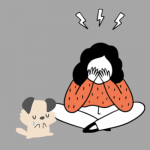
Orthorexia - The Food and Diet Obsession
Some people in their quest to eat a healthy diet develop an obsessive focus on food. This unhealthy relationship with healthy foods is referred to as orthorexia Nervosa: from the Greek orthos, meaning “correct or right” and orexia, meaning “appetite.” It is commonly described as “the health food eating disorder.”
People with orthorexia Nervosa have an extreme, perfectionistic focus on eating healthy food. Planning, purchasing, thinking about, and preparing food occupy an excessive proportion of their daily lives. The overall quality of life suffers, as there is insufficient energy left for many other important activities, such as maintaining healthy social relationships.
The diet frequently becomes increasingly strict over time. In the end, this tendency may lead to dangerous malnutrition. This is a tragic and unintended consequence of what began as a search for improved health.
The Similarities and Differences Between Orthorexia and Other Eating Disorders
While those who struggle with anorexia and bulimia are obsessed with counting calories and weight loss, those with orthorexia focus on the quality and perceived purity of what they eat.
- Foods are ranked from “bad” to “good” based on how healthy they are felt to be.
- The “best” foods seem to possess the power to cleanse and purify and prevent health problems.
- “Bad foods” are perceived as dangerous, even if consumed very occasionally or in small amounts.
- Inability to obtain chosen foods causes anxiety and stress.
- Over time, more and more foods are eliminated from the diet in the quest for greater perfection.
Other aspects of orthorexia are similar to anorexia and bulimia
- Feelings of guilt are often felt when straying away from the chosen diet.
- The person feels in control only when eating chosen foods.
- Self-esteem depends to a large extent on how closely the diet has been adhered to.
Problems Caused by Orthorexia
Unlike other eating disorders, the negative effects of orthorexia are not always obvious.
Most often, social effects are predominant. For people with orthorexia, meal planning and finding the perfect foods is such an occupying activity that there is limited time left for anything else. School, work, family and other social activities become increasingly impaired.
A kind of dietary perfectionism often takes over. The desire to eat healthily and naturally is replaced by an ambition to stick to the perfect diet and never fall off the wagon. “Cheating” leads to self-punishment, often in the form of stricter dietary rules.
Over time, more and more foods may be eliminated from the diet. In the most extreme cases, this may result in physical harm and even death.
Treatment for Orthorexia Nervosa
Identifying and treating orthorexia can be challenging. There is no bright line between making healthy eating choices and developing an unhealthy obsession with healthy food. Ultimately, the person with orthorexia must recognize that a boundary has been crossed and “eating healthy” has become an eating disorder.
Successful treatment includes increasing overall self-esteem and learning to be more flexible with foods while still maintaining a healthy diet.
There is no one specific treatment for orthorexia, as the underlying causes vary from person to person. However, consultation with a professional specializing in obsessive thinking and eating disorders is helpful and an important step in recovery.

JOIN OUR ONLINE SUPPORT GROUP
Weekly meetings
Fridays at noon / PST

VIRTUAL TREATMENT OPTIONS
Meeting each client where they are on their recovery journey. Virtually.
Our Recommended Articles
Start the road to recovery with Alsana.






